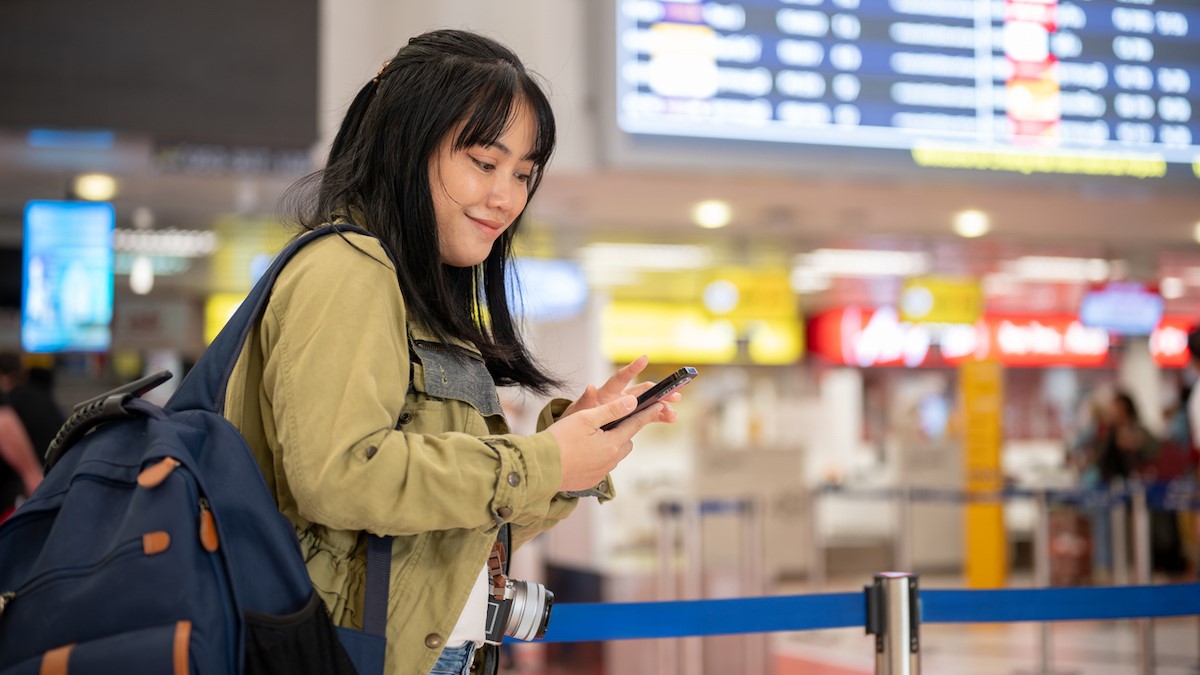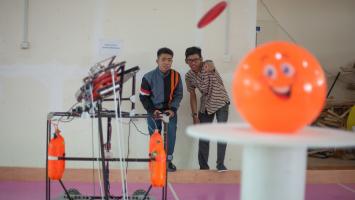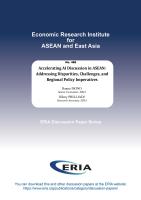Sight, Hearing, Smell, Taste, Touch—Could Gen AI Soon Be Added to Our List of Senses?

Executive Vice-President, Products & Innovation, Asia–Pacific, Mastercard

Generative AI can make organizing travel breezier and more pleasurable, for example by creating a hyper-personalized experience for the consumer. Photo credit: iStock/BongkarnThanyakij.
Generative AI has the power to transform most industries and could become such an unconscious part of our approach to technology that it functions like a seventh sense.
This article is published in collaboration with Mastercard.
There are many things in our personal and professional lives that we take for granted, and it seems increasingly likely that generative artificial intelligence (AI) will become one of them. This is even though the technology has the astonishing potential to transform conventional experiences—such as booking a trip or making a purchase—into ones that are hyper-personalized and utterly frictionless.
In fact, generative AI could ultimately come to feel so significant and intrinsic to us that it becomes like our seventh sense—that is, a natural and unconscious extension to the way we gather information and make decisions.
What will that mean for consumers and organizations large and small? At Mastercard, we believe that generative AI will usher in substantial opportunities, and has the potential to become an economic catalyst across Asia, where tech talent and startups thrive.
We see a future where chatbots can quickly share insights in strategy sessions and find you the exact statistic, document, or answer that you need. AI and generative AI can be productivity tools, helping everyone to work faster and more efficiently.
Crucially, generative AI is developing swiftly and is likely to be transformative across nearly every sector. In fact, as many as two in three organizations in the Asia–Pacific region (APAC) explored or invested in generative AI technologies in 2023, while 40% of the region's financial firms deployed AI for investment research and idea generation.
A superpower for planning travel
Travel is already undergoing a seismic shift due to AI technologies. Third-party research found that 30% of accommodation services and 56% of transportation services in the APAC area used AI in 2022.
We all know that planning a vacation can be a stressful and time-consuming task. Organizing personal travel can feel like navigating an online labyrinth, dealing with different time zones and currencies, not to mention languages. It can be easy to get lost in the maze. And while my dream of a drone collecting me from my home and teleporting me to my destination may still be a few iterations of generative AI away, AI-facilitated travel bookings can already greatly simplify the process today.
AI-powered travel plug-ins can assist users in planning upcoming trips by providing recommendations for flights, accommodation, dining, and activities. They can also offer information on the weather and nearby sites. This technology enhances our senses and ability to see the road ahead more clearly. Weeks, days, or hours spent researching and cross-checking multiple websites and apps to organize a vacation or business trip could be reduced to one simple command, such as "organize a trip to Singapore within my budget."
Generative AI transcends the time-consuming and often frustrating limitations of logistics and planning. In exchange, it can synthesize immersive videos that offer glimpses into travelers' upcoming adventures. Think of it like having a digital travel agent that does the hard work for you and inspires you in the process, on top of seeing and hearing information—just like a seventh sense might.
For example, imagine you are booking a trip to Tokyo with Agoda, including your hotel, experiences, and restaurants. With plug-ins, you would not have to leave the site, but could get recommendations while you browse and click through to payments.
In a recent Global Business Travel study, Mastercard found that 93% of Australians who organize travel for their companies and 89% of Indian corporate travel decision-makers want a more seamless and simplified process. AI could be used to automate expense claims and reimbursements, create dynamic policies, and apply smarter spend controls.
Plug-ins using generative AI will enable organizations to link company spending limits to whatever payment method employees are using to pay for their trips. Among Australian travel decision-makers, this was one of its most significant uses.
Generative AI can make organizing travel breezier and more pleasurable, for example by creating a hyper-personalized experience for the consumer. In our research, 91% of businesses surveyed said they were investing in AI and machine learning to improve personalization. This was estimated to be one of the most important differentiators of the technology by Indian travel decision-makers that we spoke to.
Your seventh sense for personal shopping
Retail—an industry predicted to grow by 40% in the APAC region between 2021 and 2027—will also be transformed by generative AI.
For example, an AI-powered personal shopping assistant could scan multiple channels; weed out products with bad reviews; look for options within your budget; and find the exact item you want. By analyzing customer data, it can provide a more intelligent, personalized experience for users in a fraction of the time. In the future, this could come to feel so natural to us that we wonder how we struggled our way through before, like a person who has been operating with a blindfold and who has finally had it removed.
Meanwhile, plug-ins will also transform our experience of making payments by preventing companies from losing sales when a payment transaction starts to get complicated while improving the customer experience. For example, Instacart, a grocery delivery service, plans to use AI chatbots to offer recipe ideas and automatically find the ingredients while we are paying for items.
Merchants can also use the technology to optimize product descriptions and e-commerce platforms, so shoppers get a hyper-personalized storefront—transforming the customer experience from a search exercise into an intelligent, personalized experience.
Navigating a way forward
If people and businesses are to really benefit from generative AI, we need to proceed with optimism and caution in equal measure.
One area that requires attention concerns the societal biases that find their way into AI datasets, such as stereotypes about race and gender. To prevent this, organizations need to ensure they have diverse datasets, regular audits, and collaborative processes in place to identify and erase bias.
Being able to rely on technology to the same extent as we rely on our physical senses is a lofty ambition, but not an unattainable one. Generative AI has the potential to revolutionize commerce, reduce stress for consumers, and foster innovation in business. It can make payments—the cornerstone of commercial exchange—more streamlined, personalized, and simple. I can not wait to see where this technology (and my drone) will take us.
This article has been published in INSIDER.

Sandeep Malhotra
Executive Vice-President, Products & Innovation, Asia–Pacific, MastercardSandeep Malhotra is an avid business technologist with more than 25 years of global experience delivering strategic technology and business solutions at Mastercard. In his current position as head of the Products & Innovation group, he oversees the development and management of all consumer and commercial products in the Asia–Pacific region. These span debit, credit, prepaid, commercial, payments gateway and processing to acceptance, account-to-account flows, remittances, open banking, digital platforms, and everything in between.

Mastercard
Mastercard powers economies and empowers people in 200+ countries and territories worldwide. Together with our customers, we’re building a sustainable economy where everyone can prosper. We support a wide range of digital payments choices, making transactions safe, simple, smart, and accessible. Our technology and innovation, partnerships, and networks combine to deliver a unique set of products and services that help people, businesses, and governments realize their greatest potential.

